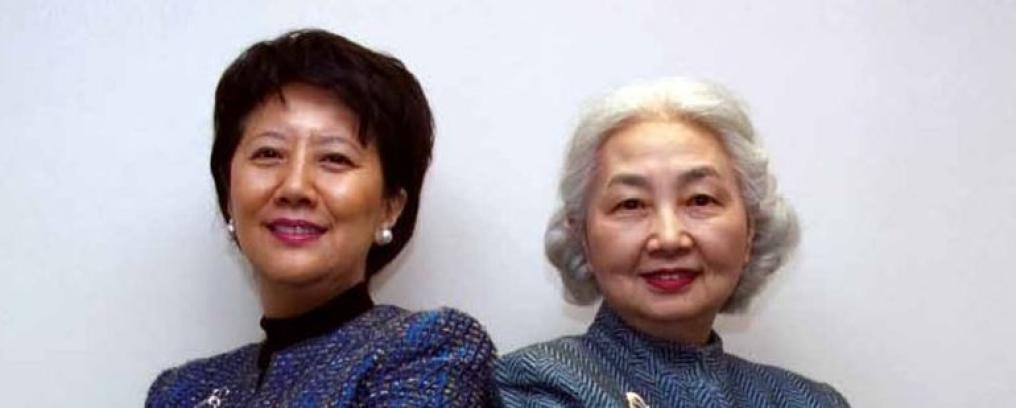In Taiwan, while there are regulations concerning the need for board support, there are no regulations concerning the officers carrying out that function. Professor Louis Chen, Chairperson of the Association for Research & Development of Corporate Organisation in Taiwan, argues that the role and responsibilities of board secretaries should be defined more explicitly in Taiwan's rule books.
The operation of the corporate board is fundamental to corporate governance. In Taiwan, many companies lack professional and full-time board secretaries to assist boards of directors which damages the interests of shareholders if the boards fail to perform their duties in corporate governance and the companies
fail to comply with regulations. In order to ensure the performance of boards and corporate compliance, the establishment of a company secretary is a critical issue.
There are laws and regulations that require companies to appoint a qualified corporate secretary in a number of jurisdictions including the UK, the US, Hong Kong, Singapore, and mainland China. The Institute of Chartered Secretaries and Administrations (ICSA) was established in 1902 in the UK and it conducts its 'International Qualifying Scheme' (IQS) to ensure that Chartered Secretarial professional standards are maintained. There are ICSA divisions in Singapore, South Africa, Canada, mainland China, Malaysia, New Zealand, Australia, Zimbabwe and Hong Kong.
In Taiwan there are regulations concerning the need for board support. For example the Financial Supervisory Commission (FSC), Taiwan's financial markets regulator, has set out in Regulations Governing Procedure for Board of Directors Meetings of Public Companies that public companies must appoint a designated unit responsible for board meetings. The functions of this designated unit
are similar to the typical corporate secretarial board support functions, but there are no rules setting out the required qualifications and training of those working in the designated unit, which may result in deficiencies in board meetings.
Developing the board secretary role in Taiwan
1. Roles and functions of the board secretary
The effectiveness of the board is a critical subject since companies are facing a complex business environment, both in terms of increased regulation and tougher risk management challenges. The Association for Research & Development of Corporate Organisation, Taiwan, recently sent a survey questionnaire The Applications of Board Secretary to all listed companies in the Taiwan Stock Exchange (TWSE) and Gre Tai Securities Market (GTSM – Taiwan's over-the- counter and bond trading board). Of the total 1,483 listed companies contacted, there were 672 effective responses, giving an overall response rate of 45.31%. An impressive 81.85% of respondents agreed that the role of the board secretary in corporate governance and board support is increasingly important. However, most respondent companies do not have a full-time board secretary unit. Only 17.86% of respondents serve as a full-time position and 81.40% of respondents serve in dual roles – usually the finance department or the chief executive officer's clerk or the general administrative department are responsible for the operation of the board.
Given the lack of recognition of the board secretary in Taiwanese enterprises and society, the definition of the role and responsibilities should be developed more explicitly. Moreover, in order to enhance the recognition of board secretaries within enterprises and increase the appeal of this profession to students, the authorities should promote the profession both within college educational institutions and enterprises.
The potential roles that board secretaries can play in listed companies are set out below:
• managing corporate governance matters
• managing regulatory compliance
• liaising between management and the board
• liaising between the listed company and the authorities, and
• maintaining shareholder relationships.
2. Regulatory recommendations – FSC
Defining more explicitly the roles and responsibilities of the board secretary in Taiwan's corporate legislation and regulation would be a huge step forward. This ideally would mean some statement regarding board secretaries’ functions in Taiwan's Company Act or Securities and Exchange Act, but since the evolution of the board secretary profession is in its infancy in Taiwan, this legislative reform will have to be a long-term goal.
Initially, a more realistic and resource- efficient initiative would be to revise the Regulations Governing Procedure for Board of Directors Meetings of Public Companies issued by FSC. Article 5 of these regulations states that 'The board of directors of a company shall appoint an agenda working group, which shall be specified in the rules of procedure. The agenda working group shall prepare agenda items for board of directors meetings and provide comprehensive pre-meeting materials, to be sent together with the notice of the meeting’. While this article goes some way towards defining the board support functions of the agenda working group within public companies, the functions described are quite limited and there are no requirements relating to the qualifications and training required for those working in the agenda working group. It would be a huge step forward if the authorities could integrate the job functions of the agenda working group with those of the board secretary and define the qualifications and training required for those taking on these functions.
3. Regulatory recommendations – TWSE/ GTSM
Depending on the scale of the company and the complexity of its operations, many listed companies in TWSE and GTSM would profit from having a dedicated board secretary. Therefore, it would be helpful if the TWSE and boards would make explicit requirements regarding board secretaries in their regulations.Require the appointment of board secretaries in the Best Practice Principles –
The Corporate Governance Best Practice Principles for TWSE/ GTSM Listed Companies (Best Practice Principles) are the main rules for listed companies regarding corporate governance. It would reinforce the corporate governance role of the board secretary if the appointment of a full- time board secretary and the main job functions of the board secretary were to be added to the Best Practice Principles.Reward the appointment of board secretaries in corporate governance assessments –
In this initial stage and before the placement and qualifications of board secretaries are legislated for, bonus points could be awarded to companies appointing professional board secretaries in corporate governance assessments, particularly the assessment made by the Taiwan Corporate Governance Association.Define the qualifications required for board support officers in the TWSE/ GTSM listing rules –
As mentioned above, Article 5 of the Regulations Governing Procedure for Board of Directors Meetings of Public Companies issued by FSC requires listed companies to appoint an agenda working group to provide support for board meetings. If the TWSE/ GTSM boards were to define the qualifications of officers working in these agenda working groups as a requirement of listing in its Rules Governing Review of Securities Listings, this would be a step towards the professionalisation of the board secretary. However, this might raise legislative terminology issues for the authorities to consider.Certifications and Courses –
89.14% of respondents to our survey questionnaire The Applications of Board Secretary agreed that the board secretary should take CPD courses to maintain professional standards. In addition, 94.79% of respondents stated that they have experienced difficulties specifically in regulatory compliance issues. Moreover, 96.43% of respondents indicated that they have insufficient working knowledge specifically in listed company-related regulations and the Securities and Exchange Act. The work of the board secretary requires knowledge of the issues faced by both management and the board, and board secretaries need to continually update their knowledge of relevant laws and regulations to maintain their professional standards. Many jurisdictions, including the UK, Hong Kong, Singapore, and mainland China provide training courses leading to professional certificates to ensure the professional standards of corporate secretaries. We should provide such courses and certificates, as well as university-level courses, to those interested in this field in Taiwan so that the professional standards of board secretaries are maintained and the corporate governance role of board secretaries is enhanced.Conclusion
Facing a diversified and globalised business environment and dealing with complex laws and regulations, corporate boards require professional and full-time board secretaries to ensure regulatory compliance and board performance and to avoid damaging shareholder interests. However, the degree to which the board secretary functions are professionalised in Taiwan will depend on authorities such as the FSC, TWSE and GTSM. In order to get the benefit that board secretariescan bring to corporate governance practice, there needs to be better role recognition and promotion in legislation. In addition, professional training courses and certificates are essential to maintain the professional standards of board secretaries in Taiwan. Professor Louis Chen Chairperson of the Association for Research & Development of Corporate Organisation, TaiwanSIDEBAR: Professionalising board support – the global trend
Where there are boards you would expect to find board secretaries – the individuals or departments responsible for ensuring that the board meets regularly and is properly informed. In Hong Kong this work is carried out by the company secretary, but elsewhere the individuals performing board support work do not always go under this name. As Professor Chen's article explains, in Taiwan the board support team is referred to in legislation as the 'agenda working group’ and in most companies the finance department or the CEO's clerk or the general administrative department are responsible for the board support function.
Despite the diversity of approaches to the core corporate secretarial functions (board support; regulatory compliance; liaison between between board and management; and advising the board on governance matters) there are several global trends driving the increasing professionalisation of this role. Stakeholders expect a high standard of corporate governance and this has incentivised companies worldwide to ensure that the board has access to the advice and services of an appropriately qualified company secretary.
In Hong Kong, recent regulatory developments have highlighted the fact that one stakeholder in particular – regulators – are particularly keen to ensure that the company secretary function is effectively carried out. From 1 April 2012, a new section in the Corporate Governance Code defines the role and responsibilities of company secretaries as: supporting the board; ensuring good information flow within the board; ensuring board policy and procedures are followed; advising the board on governance matters; and facilitating induction and directors’ professional development.
Other regulatory changes which have helped to promote the value of company secretaries in Hong Kong include the Corporate Governance Code provision requiring the dismissal of the company secretary to be the subject of a physical board meeting rather than by written resolution; that the company secretary should report to the chairman and/ or chief executive; and the new requirements relating to the qualifications, experience and training of company secretaries (including the requirement for company secretaries to attend 15 hours’ of professional training per financial year).
Practitioners in Hong Kong have welcomed these regulatory developments since their effectiveness as advisers to the board can be hampered where directors are not aware of the value that an appropriately qualified company secretary can bring.



